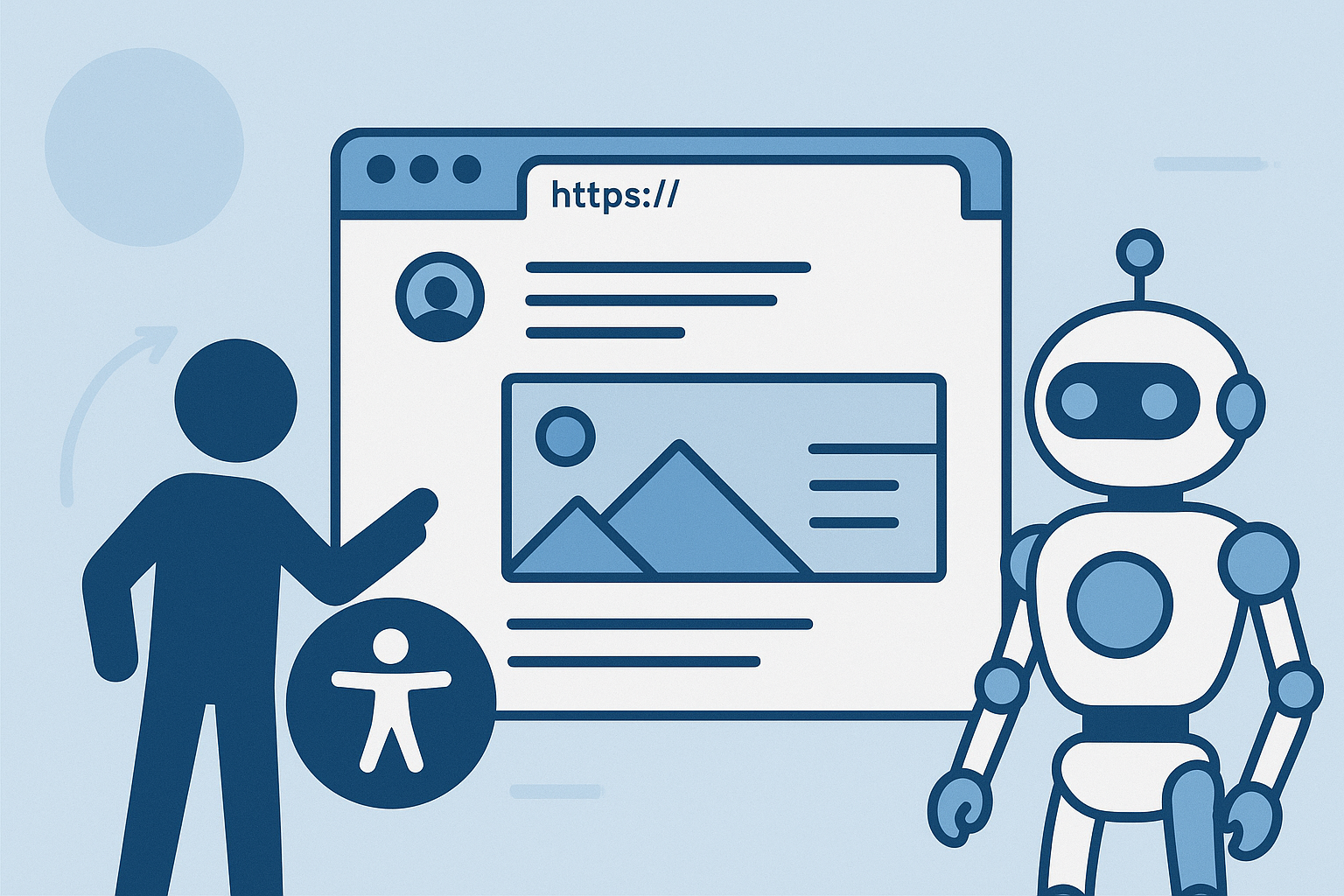The Importance of Web Accessibility in an AI-Driven World
As AI agents become a major user group, web accessibility is becoming more important than ever.

For decades, web accessibility has been about making the web usable for people with disabilities. Those of us who champion accessible design know that good accessibility doesn't just help users with visual, auditory, motor, or cognitive challenges, it improves usability for everyone.
Despite these universal benefits, investing in accessibility has been a tough sell for many businesses. Users often just "deal with" poor experiences, and the business impact of a poor user experience isn't always obvious or quantifiable.
But with AI agents becoming a major user group, everything changes.
AI Agents Need Accessibility
The emergence of AI agents browsing the web has transformed accessibility from a human-focused concern into a universal requirement. Semantic HTML, alt attributes, and ARIA roles don't just improve assistive technology support. They create a web that's easier for AI agents to navigate and understand.
AI systems thrive on structure and meaning. A well-labeled button (<button type="button" aria-label="Actions menu"><svg>...</svg></button>)
or a clear heading hierarchy gives an AI agent immediate understanding of how to interact with a
page without the need for visual analysis.
Without these semantic cues, AI systems must rely on expensive computer vision models to guess what's happening. This mirrors the frustrations of screen reader users, but with a crucial difference: for AI agents, the cost is immediate, measurable, and substantial. Suddenly, the business case for accessibility isn't a nebulous concept, it's quantifiable in real dollars and cents.
AI and human users are becoming more intertwined
We're still in the early days of AI agents browsing the web, but the trend is accelerating rapidly. OpenAI's ChatGPT Atlas browser is just one example in a growing ecosystem of AI-powered tools that can read, interpret, and interact with websites on behalf of users.
As AI agents become a significant user group, we need to start treating them as first-class users. The benefits are clear: lower costs, improved efficiency, and better user experiences.
The beauty of this new reality is that improving accessibility for AI also improves accessibility for people. A site that’s easy for an AI agent to parse is also easier for screen readers, search engines, and mobile users to navigate.
For those of us who care deeply about user experience, this creates a powerful business case: investing in accessibility is no longer just a nice-to-have. It’s about future-proofing your digital presence in an increasingly AI-driven world.
In short, as AI becomes a core part of how people and machines experience the web, making accessibility a priority is more important than ever, not only because it's the right thing to do, but because it's now a competitive advantage.